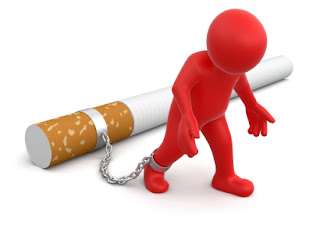Smoking, The Biggest Factors of Oral Cancer
Based on data from Cancer Research UK, cases of oral cancer increased 68 percent in the last two decades. The numbers are so alarming that cases of oral cancer needs to be more aware.
Cancer Research UK noted, smoking is the biggest risk factor for oral cancer. About 65 percent of oral cancers are related to smoking and is commonly experienced by men.
The cancer cases in men over 50 years has increased to 59 percent. From 2100 cases become 4400 cases per year.
Ironically, oral cancer also started easily found at a young age. Data show that cases of oral cancer in men aged under 50 years jumped 67 percent in the last 20 years. At first 340 cases to 640 cases per year.
Although the case is more common in men, cases in women has also increased in the past two decades, from 1,100 cases become about 2,200 cases.
The dentist is often the first person to discover oral cancer. Therefore, experts expect a dentist can quickly refer patients if found signs of cancer in the mouth.
In addition to smoking, the risk of oral cancer is also increased when someone much alcohol and unhealthy eating patterns, such as eating fewer vegetables and fruit. Infection of Human Papilloma Virus (HPV) can also cause cancer of the mouth.
Jessica Kirby of Cancer Research UK encourages communities prevent oral cancer by not to smoking, not drinking alcohol, and lots of fruit and vegetables consumption.
"HPV vaccination may also help to protect against oral HPV infection and can prevent various types of cancer associated with the HPV virus," said Jessica.
Cancer Research UK noted, smoking is the biggest risk factor for oral cancer. About 65 percent of oral cancers are related to smoking and is commonly experienced by men.
The cancer cases in men over 50 years has increased to 59 percent. From 2100 cases become 4400 cases per year.
Ironically, oral cancer also started easily found at a young age. Data show that cases of oral cancer in men aged under 50 years jumped 67 percent in the last 20 years. At first 340 cases to 640 cases per year.
Although the case is more common in men, cases in women has also increased in the past two decades, from 1,100 cases become about 2,200 cases.
The dentist is often the first person to discover oral cancer. Therefore, experts expect a dentist can quickly refer patients if found signs of cancer in the mouth.
In addition to smoking, the risk of oral cancer is also increased when someone much alcohol and unhealthy eating patterns, such as eating fewer vegetables and fruit. Infection of Human Papilloma Virus (HPV) can also cause cancer of the mouth.
Jessica Kirby of Cancer Research UK encourages communities prevent oral cancer by not to smoking, not drinking alcohol, and lots of fruit and vegetables consumption.
"HPV vaccination may also help to protect against oral HPV infection and can prevent various types of cancer associated with the HPV virus," said Jessica.

